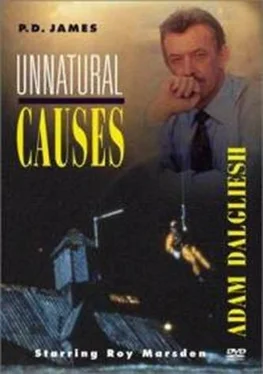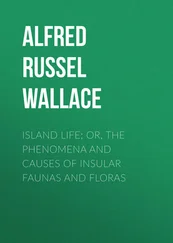P James - Unnatural Causes
Здесь есть возможность читать онлайн «P James - Unnatural Causes» весь текст электронной книги совершенно бесплатно (целиком полную версию без сокращений). В некоторых случаях можно слушать аудио, скачать через торрент в формате fb2 и присутствует краткое содержание. Жанр: Детектив, на английском языке. Описание произведения, (предисловие) а так же отзывы посетителей доступны на портале библиотеки ЛибКат.
- Название:Unnatural Causes
- Автор:
- Жанр:
- Год:неизвестен
- ISBN:нет данных
- Рейтинг книги:4 / 5. Голосов: 1
-
Избранное:Добавить в избранное
- Отзывы:
-
Ваша оценка:
- 80
- 1
- 2
- 3
- 4
- 5
Unnatural Causes: краткое содержание, описание и аннотация
Предлагаем к чтению аннотацию, описание, краткое содержание или предисловие (зависит от того, что написал сам автор книги «Unnatural Causes»). Если вы не нашли необходимую информацию о книге — напишите в комментариях, мы постараемся отыскать её.
Unnatural Causes — читать онлайн бесплатно полную книгу (весь текст) целиком
Ниже представлен текст книги, разбитый по страницам. Система сохранения места последней прочитанной страницы, позволяет с удобством читать онлайн бесплатно книгу «Unnatural Causes», без необходимости каждый раз заново искать на чём Вы остановились. Поставьте закладку, и сможете в любой момент перейти на страницу, на которой закончили чтение.
Интервал:
Закладка:
Dalgliesh said that he was sure Miss Coombs always gave value and Miss Coombs, after a brief struggle, decided prudently to let the remark pass. Dalgliesh asked: “Did you believe this story of being a writer?”
“No, dear. Not at first, anyway. I’d heard it too often before. You’d be surprised the number of chaps who want to meet a girl ‘just to get authentic background for my new novel.’ If it’s not that then they’re doing sociological research. I’ll bet they are! He looked that type. You know, insignificant, nervous and eager at the same time. But when he suggested we should take a taxi and I could dictate the stuff to him and he type it straight away, I began to wonder. I said I couldn’t leave the club for more than an hour at most and I’d rather we went to my place. When you don’t know who you’re playing keep to the home ground, I always say. So I suggested we took a taxi to my flat. He said all right and we left just before nine-thirty. That right, Sid?”
“That’s right, Lil. Nine-thirty it was.” Sid lifted sad eyes from his glass of milk. He had been contemplating, without enthusiasm, the puckered skin which had slowly formed on its surface. The smell of hot milk, sickly and fecund, seemed to permeate the claustrophobic office.
Luker said: “For God’s sake drink the stuff or chuck it away, Sid. You make me nervous.”
“Drink it up, darling,” encouraged Miss Coombs. “Think of your ulcer. You don’t want to go the way of poor Solly Goldstein.”
“Solly died of a coronary and milk never helped that. The opposite I should think. Anyway, the stuff’s practically radioactive. Full of strontium-90. It’s dangerous, Sid.”
Sid trotted to the washbasin and poured the milk away. Resisting the urge to throw open the window Dalgliesh asked: “How did Mr. Seton appear while you were sitting together?”
“Nervy, dear. Excited but on edge at the same time. Michael wanted to move him to another table, it’s a bit draughty near the door, but he wouldn’t budge. He kept looking at the door while we were talking.”
“As if he was expecting someone?”
“No, dear. More as if he wanted to make sure it was still there. I half-expected him to do a bunk. He was an odd fish and no mistake.”
Dalgliesh asked what had happened when they left the club.
“The same as I told that CID chap from Suffolk. We got a taxi at the corner of Greek Street and I was going to give the cabbie my address when Mr. Seton suddenly said that he’d rather just drive around for a bit and would I mind. If you ask me he’d suddenly got cold feet. Scared of what might happen to him, poor little twerp. Anyway, that suited me and we cruised around the West End a bit and then went into Hyde Park. I strung him a bit of a yarn about the dope racket and he made notes in a little book. If you ask me he was a bit drunk. Suddenly he got hold of me and tried to kiss me. Well, I was a bit fed up with him by then and didn’t fancy being pawed about by that little twit. I got the impression that he only made a pass at me because he thought he ought to. So I said I ought to be back at the club. He asked to be put down outside Paddington Underground and said he’d take a tube. No hard feelings. He gave me two fivers and an extra pound for the taxi fare.”
“Did he say where he was going?”
“No. We came up Sussex Gardens-it’s one-way only down Praed Street now, as you know-and put him down outside the District Line. But he could have crossed the road to the Bakerloo I suppose. I didn’t watch to see. I said goodbye to him at about quarter past ten outside Paddington Underground and that’s the last I saw of him. And that’s the truth.”
Even if it weren’t, thought Dalgliesh, it was difficult to see how the story could be disproved. There was too much corroborative evidence and Lil was the last woman in London to be panicked into changing a good story. It had been a waste of time coming to the Cortez. Luker had been unnaturally, almost suspiciously, co-operative but Dalgliesh had learned nothing which Reckless couldn’t have told him in half the time.
Suddenly he felt again some of the uncertainties and the inadequacies which had tormented the young Detective Constable Dalgliesh nearly twenty years ago. When he took out Bryce’s photograph of the beach party and handed it round it was with no hope of success. He felt like a doorstep salesman proferring his unwanted rubbish. They looked at it politely enough. Perhaps, like kindly householders, they were rather sorry for him. Doggedly, persevering, he asked whether any of the people shown had been seen at the Cortez Club. Lil screwed up her eyes in an agony of effort while holding the snap at arm’s length, thus effectively blurring her vision. Lil, Dalgliesh remembered, was like most women. She lied most effectively when she could convince herself that, essentially, she was telling the truth.
“No, dear, I can’t say I recognise them. Except Maurice Seton and Digby, of course. That’s not to say they haven’t been here. Better ask them.”
Luker and Sid, less inhibited, merely glanced at the photograph and averred that they hadn’t seen the subjects in their lives.
Dalgliesh looked at the three of them. Sid had the pained, rather anxious look of an underfed little boy, hopelessly at sea in the world of wicked adults. Dalgliesh thought that Luker might be secretly laughing if the man had ever been known to laugh. Lil was looking at him with the encouraging, motherly, almost pitying look which, he thought bitterly, was usually reserved for her customers. There was nothing more to be learned from them. He thanked them for their help-he suspected that the note of cool irony wasn’t lost on Luker-and let himself out.
3
When Dalgliesh had left, Luker jerked his head at Sid. The little man left without a word or a backward glance. Luker waited until his footsteps had been heard going downstairs. Lil, alone with the boss, showed no particular anxiety but settled herself more comfortably in the shabby armchair on the left of the gas fire and watched him with eyes as bland and incurious as the eyes of a cat. Luker went to a wall safe. She watched his broad back as he stood there, motionless, turning the combination lock. When he turned round she saw that he held a small parcel, the size of a shoebox, covered with brown paper and loosely tied with thin white string. He laid it on his desk.
“Have you seen this before?” he asked.
Lil disdained to show curiosity. “It came for you by this morning’s post, didn’t it? Sid took it in. What’s wrong with it?”
“Nothing’s wrong with it. On the contrary it is an admirable parcel. I’ve undone it once, as you can see, but it was a very neat little job when it arrived. You see the address? L. J. Luker, Esq., The Cortez Club. W. 1. Neat capital letters, characterless, printed in Biro. Not very easy to identify that hand. I like the esquire. My family is not armigerous as it happens, so the writer is being a little pretentious but as he shares that failing with my income tax inspector and half the tradesmen in Soho, we can hardly consider it a clue. Then there’s the paper. Perfectly ordinary brown paper; you can buy it in sheets from any stationer. And the string. Do you see anything remarkable about the string, Lil?”
Lil, watchful, admitted that there was nothing remarkable about the string.
Luker went on: “What is rather strange, though, is the amount of postage he-or she-paid. At least a shilling on the generous side by my estimate. So we take it that the parcel was stamped outside a post office and then pushed over the counter at a busy time. No waiting for it to be weighed. There would be less chance of the customer being noticed that way.”
“Where was it posted?”
Читать дальшеИнтервал:
Закладка:
Похожие книги на «Unnatural Causes»
Представляем Вашему вниманию похожие книги на «Unnatural Causes» списком для выбора. Мы отобрали схожую по названию и смыслу литературу в надежде предоставить читателям больше вариантов отыскать новые, интересные, ещё непрочитанные произведения.
Обсуждение, отзывы о книге «Unnatural Causes» и просто собственные мнения читателей. Оставьте ваши комментарии, напишите, что Вы думаете о произведении, его смысле или главных героях. Укажите что конкретно понравилось, а что нет, и почему Вы так считаете.












